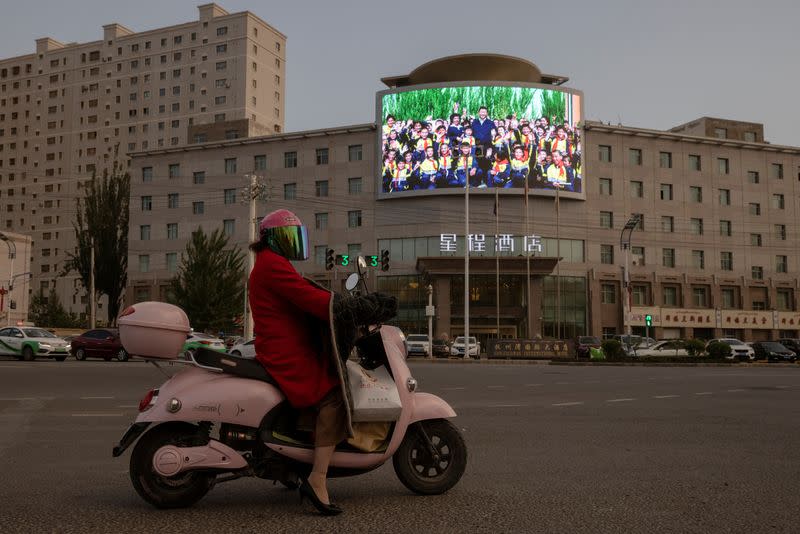Major auto groups in China such as Tesla, Volkswagen and BYD have been warned by Human Rights Watch they must do more to ensure their cars are not made of commodities produced by Uyghur forced labour.
In a new report launched on Thursday, the rights group said it had found evidence that aluminum producers had employed workers from Chinese government-backed labour transfer programmes, which it says coerce Uyghurs and other Turkic Muslims into jobs in western Xinjiang province and other regions.
Aluminum produced in Xinjiang is used in China to manufacture automotive parts which are then sold to global carmakers, and these companies are responsible under United Nations principles to ensure forced labour is not used in supply chains, HRW said.
ALSO SEE: US Accuses More Chinese Tech Firms of ‘Helping Beijing’s Military’
Senior researcher Jim Wormington said HRW had named and reached out to Tesla, Volkswagen, BYD, General Motors and Toyota due to their large sales volumes but that they had not found any specific violation of forced labour.
Rights groups including HRW accuse Beijing of abuses against Uyghurs, a mainly Muslim ethnic minority of around 10 million people in the western region of Xinjiang, including the mass use of forced labour in internment camps. China has denied such allegations.
These car companies should take measures to map out their supply chains better and immediately disengage from any direct supplier in Xinjiang until due dilligence is possible, the group urged.
Xinjiang is China’s No-2 primary aluminum producing region.
“Car companies simply don’t know the extent of their links to forced labour in Xinjiang in their aluminum supply chains,” Wormington said.
“Consumers should know their cars might contain materials linked to forced labour or other abuses in Xinjiang.”
Volkswagen said that it took a firm stand against forced labour and immediately investigated any allegations.
The company has a joint venture in Xinjiang and, under heavy investor pressure, commissioned an audit last year that found no signs of forced labour. Even so, the exercise has been controversial as the auditor cited data collection challenges.
Tesla did not respond to a query from Reuters. Human Rights Watch said Tesla had told them that it had, “in several cases”, mapped its supply chain back to the mining level and had not found evidence of forced labour.
Toyota said it would closely review HRW’s report and that it expected suppliers to respect human rights.
General Motors, BYD and China’s State Council Information Office, which handles media queries for the Chinese government, and the Xinjiang government did not respond to requests for comment.
China may have overtaken Japan as the world’s largest auto exporter in 2023, thanks to the strength of carmakers such as Chery, SAIC, Geely and BYD.
- Reuters with additional editing by Jim Pollard
ALSO SEE:
China Sanctions US Firm Over Xinjiang-Related Investigations
Senior Auditors Wary on Review of VW Plant in China’s Xinjiang
US Puts More Chinese Officials, Firms on Xinjiang Sanctions List
US Consultancy Firm in China Worked on Xinjiang Before Raids
China Should Release All Detainees in Xinjiang, UN Says
US Senate Passes Xinjiang Import Ban Over ‘Forced Labour’
Tesla Criticised Over Showroom in China’s Xinjiang Region
























